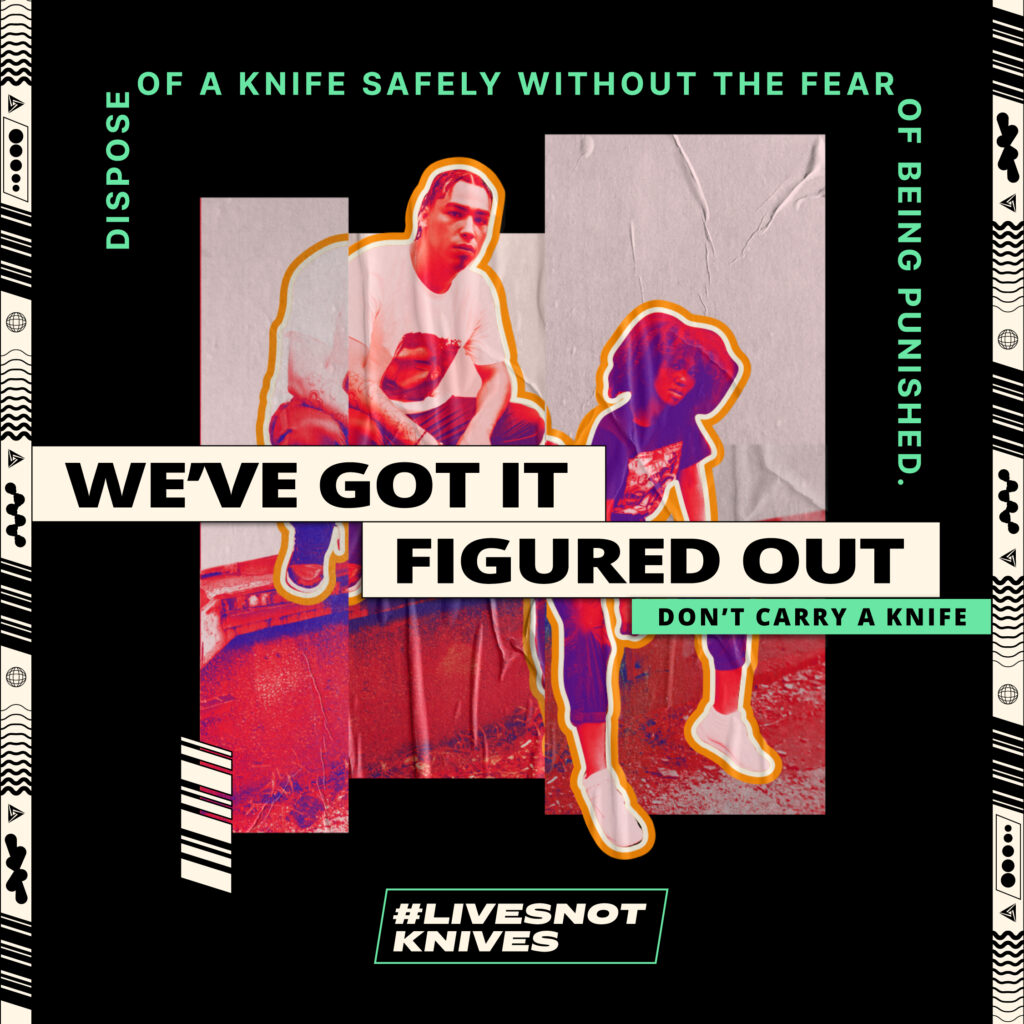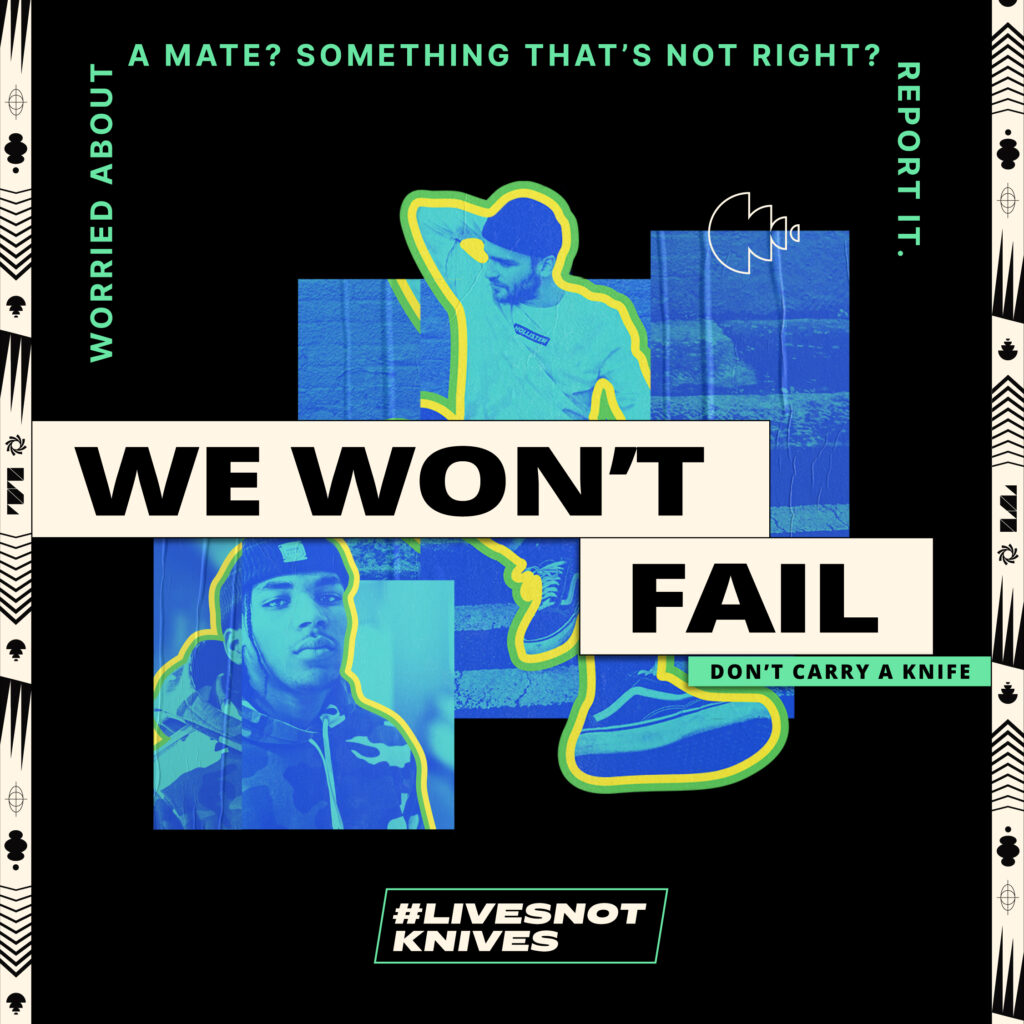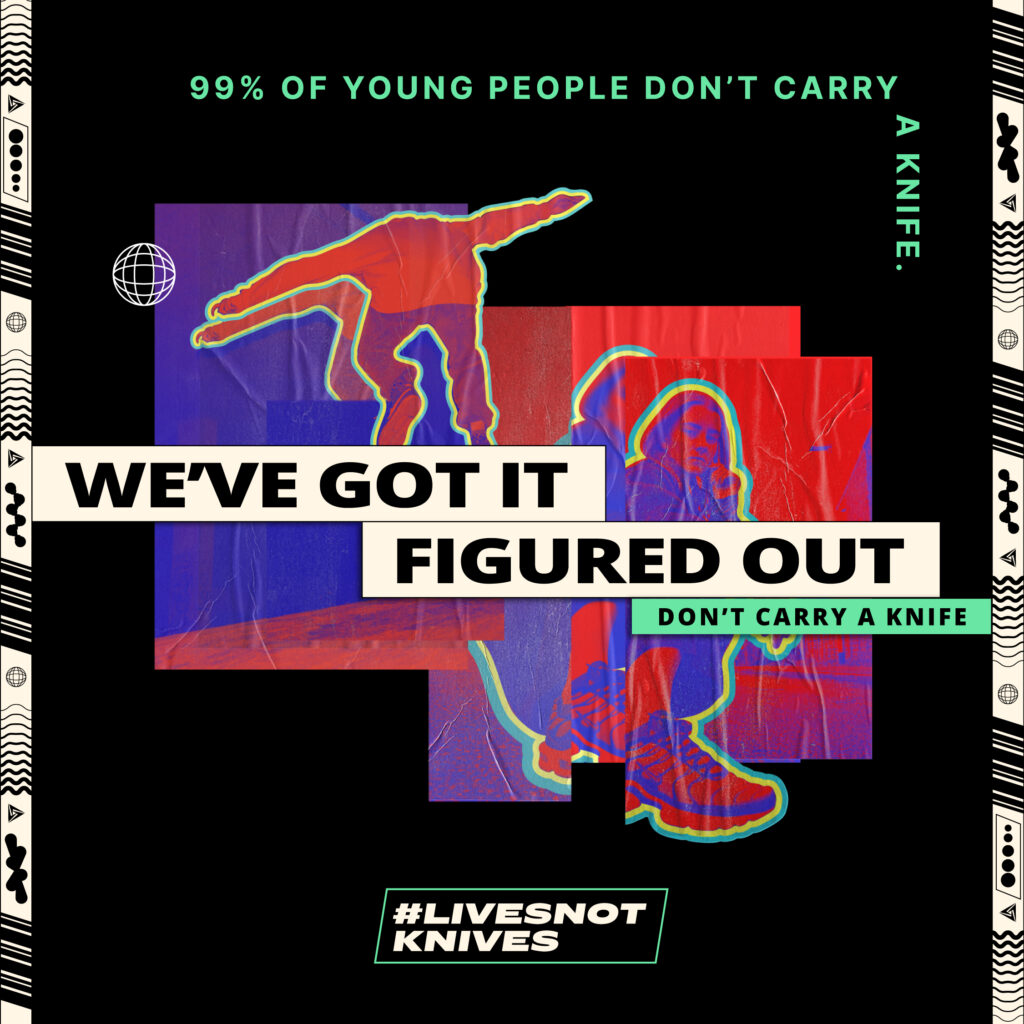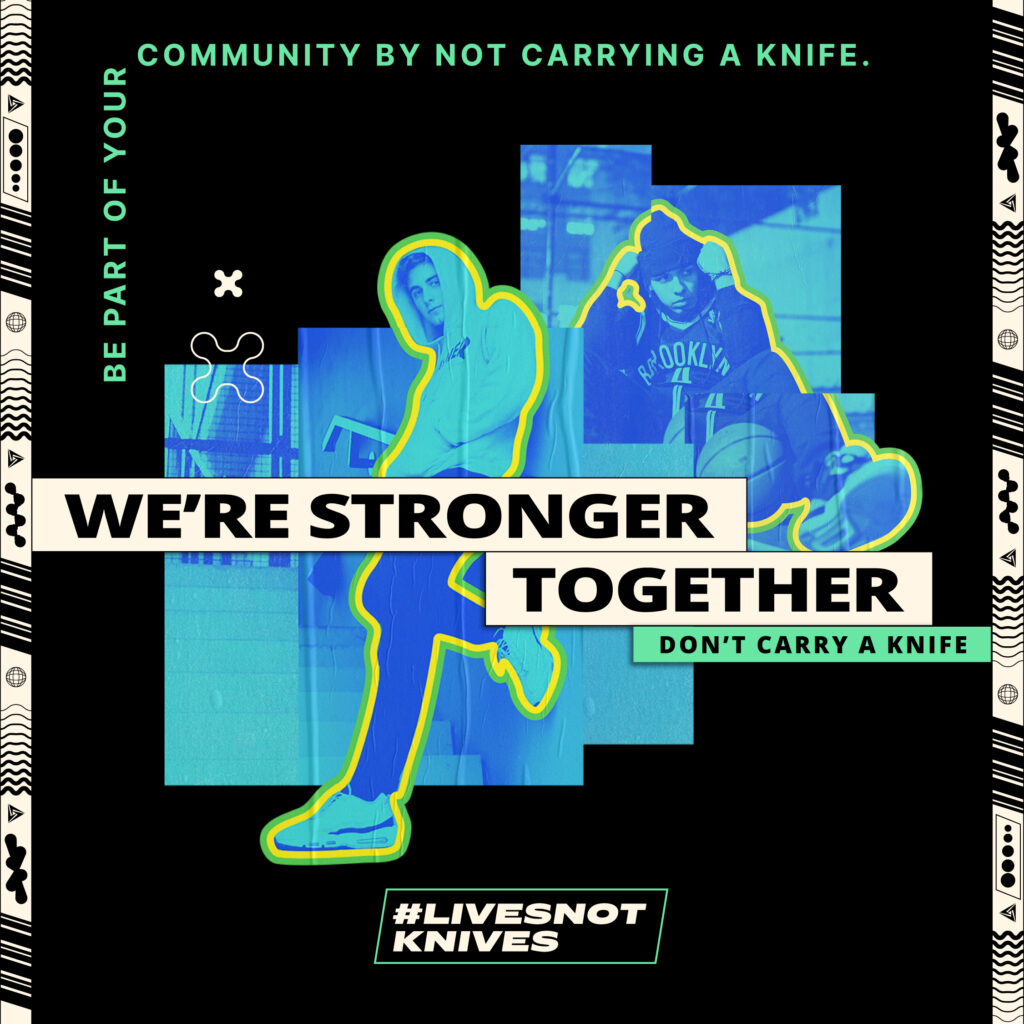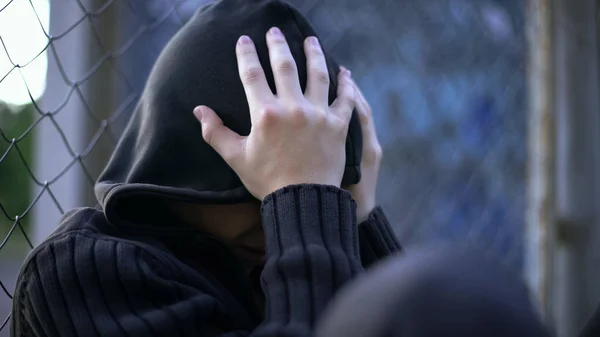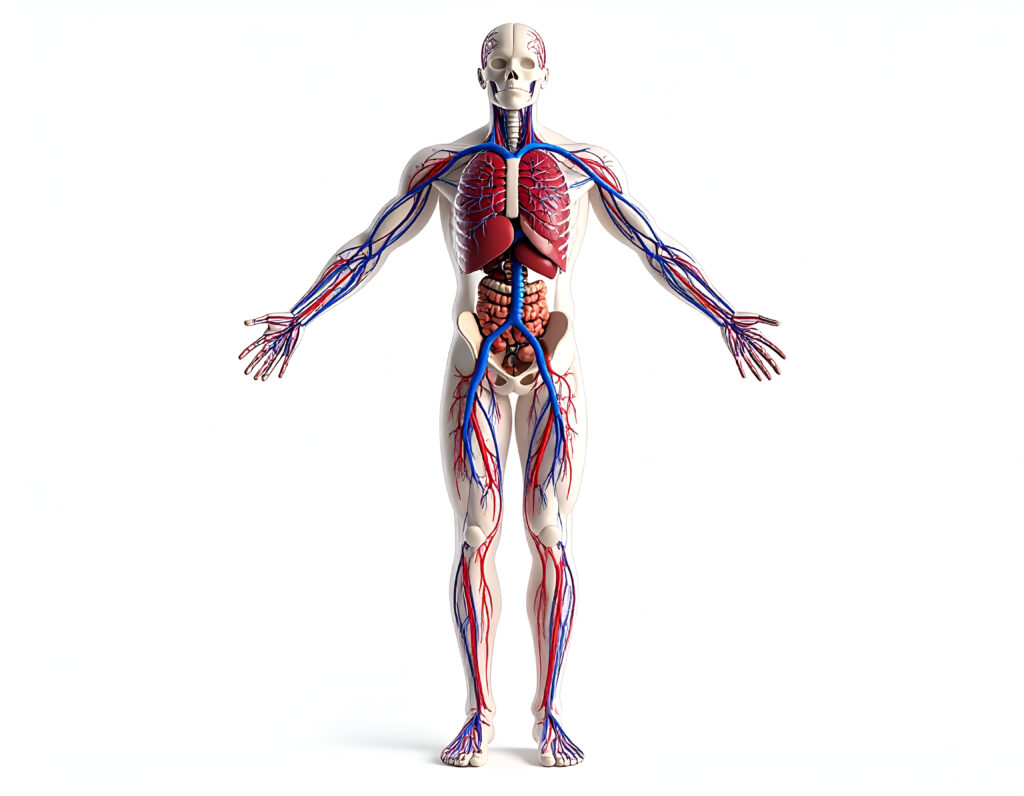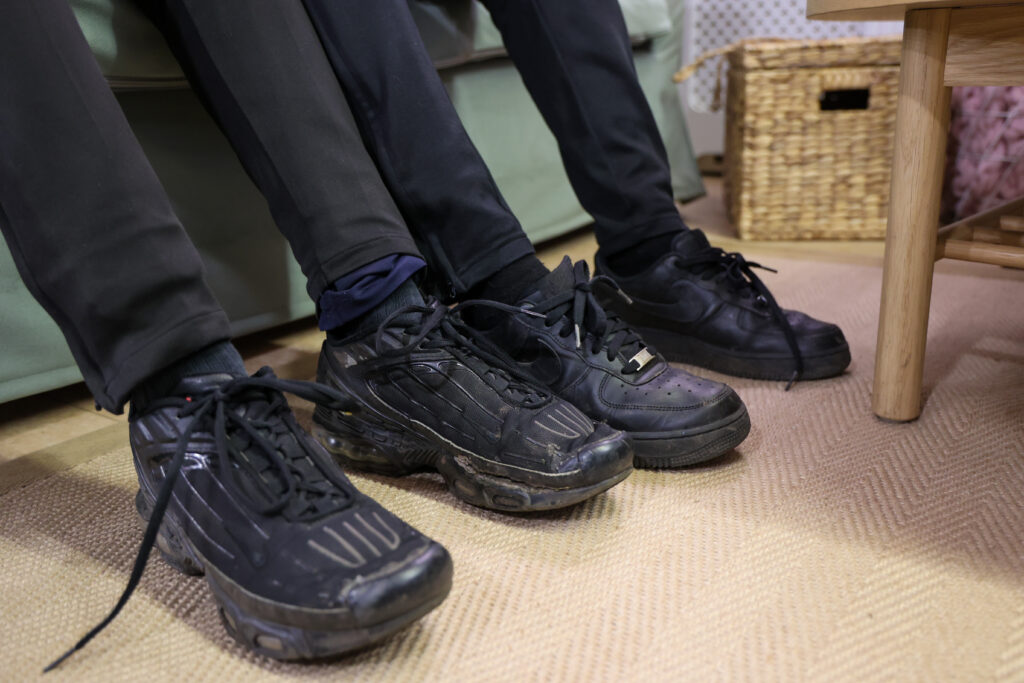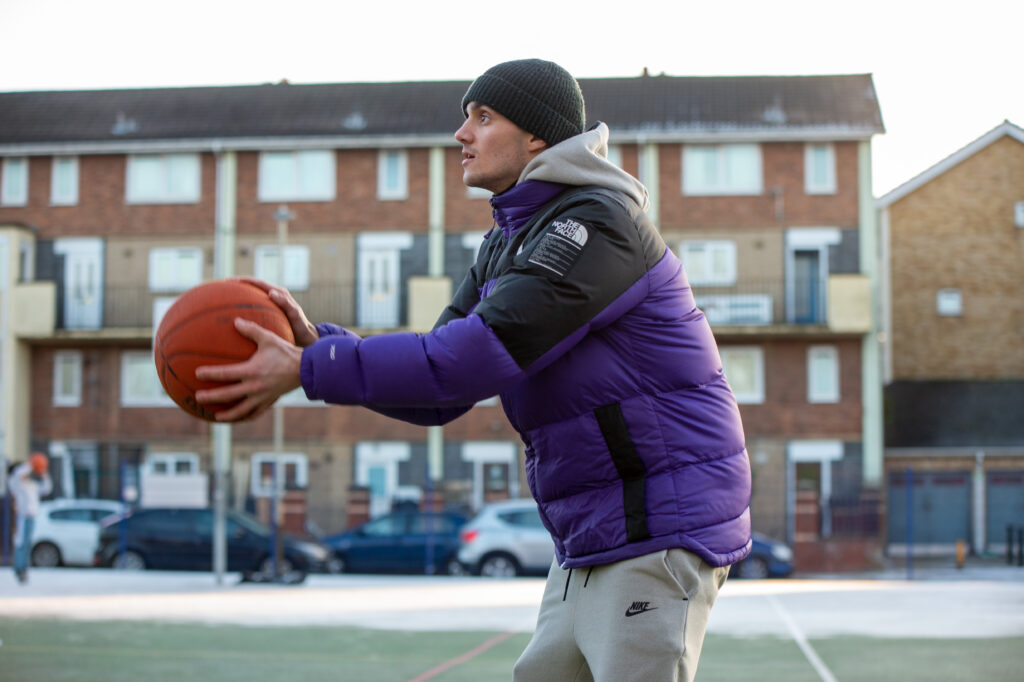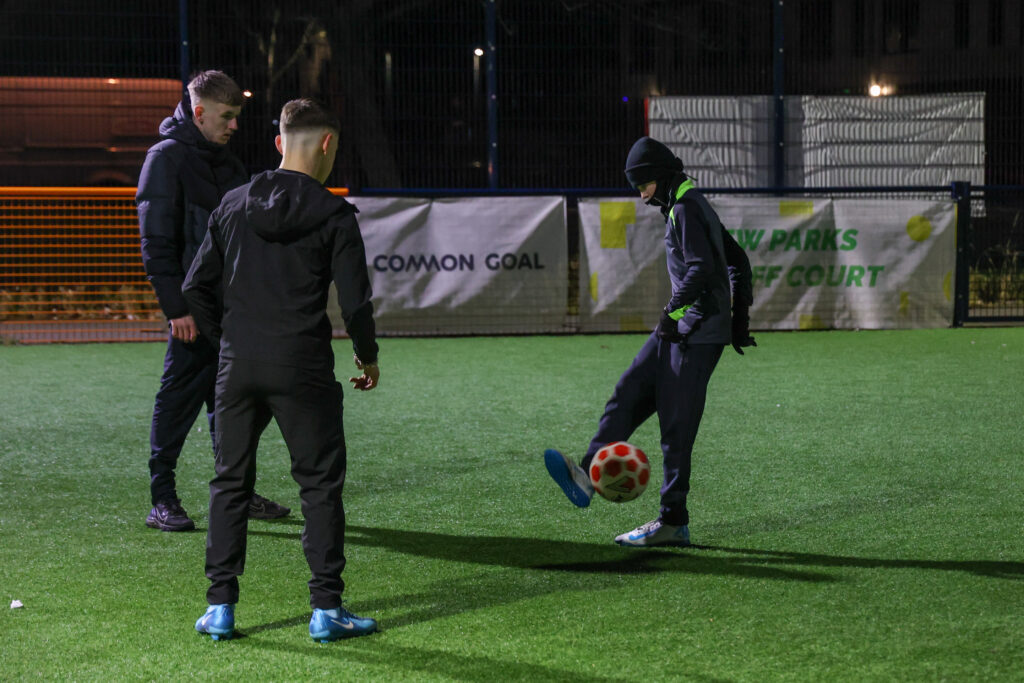We Don’t Carry #LivesNotKnives
We Don’t Carry #LivesNotKnives is our anti-knife crime campaign that gives you the facts on the dangers of carrying knives. We want to let you know that it’s never too late to make a positive change.
WHAT IS KNIFE CRIME?
Knife crime is any crime that involves a knife or sharp instrument. Offences with a knife can include threatening people, a robbery or burglary, a murder or assault. Simply carrying a knife – even if you haven’t used it – is also considered a crime.
Young people might carry a knife:
- For protection, in case of being attacked.
- Because they are being brought up in a household where carrying a knife is acceptable.
- Because they cannot have a fist fight and feel that a weapon will back them up.
- To fit in with a peer group or gang.
There is no 'safe place' to stab someone
All our blood is kept inside our organs, arteries and veins. If a knife enters the body, through an artery such as in the arm or leg, or in any organ, we will lose blood.
If you don’t have enough blood going to the brain it can fail and you can die within minutes.
Staying away from knife crime
If you carry a knife your future is at risk. Did you know that young people who carry a weapon are 3 times more likely to be hospitalised with an injury caused by violence? Any stab can be fatal and the consequences you could face with the police will be just as severe.
You may feel like you need to carry because of the places you go or the people you hang out with, but according to statistics 96% of young people in England and Wales are living knife free today.
#KnifeFree – Kamakaze and Jake’s story
Hear from Leicester artists Jake and MC Kamakaze as they share their stories about goals and focussing on something you love to avoid being led into knife crime.
Knife Crime Map
Locations
- Youth Club 6 videos
- Fire Station 2 videos
- School 3 videos
- Hospital 5 videos
- Police Station 2 videos
- Community Hub 8 videos
- Park 4 videos
- Home 4 videos
- Home 2 3 videos
- Street 4 videos

to view videos.


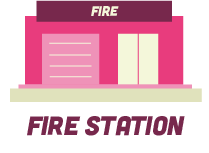









What does it mean for me?
- Carrying a knife can mean four years in prison, even if you haven’t used it. Is it worth risking your freedom?
- Carrying a knife for self-protection is not an excuse – you can still get a criminal record.
- Carrying a knife has consequences for the people around you. Your choices impact your friends and family, too.
- No parent or grandparent would ever want their child to go to prison, get injured or be killed. If you lose your life, get injured or go to prison, this can cause mental health problems for your family and friends and put them at risk of taking the same path.
- Statistics show that when you carry a knife for ‘protection’ you have a higher chance of being stabbed yourself.
- Getting into trouble with the law can affect your job opportunities in the future, as employers may be less likely to hire someone with a criminal record.
- You may be stopped from travelling and going on holiday, as countries like the USA and Canada may not allow someone with a criminal record to enter.
JOINT ENTERPRISE
What is it?
Joint enterprise is a legal rule which allows two or more people to be convicted of the same crime, potentially receiving the same sentence, even if they had differing levels of involvement.
The joint enterprise law is for circumstances where there is evidence to prove a group of people were involved in a crime, but where it is difficult to determine who is the main perpetrator.
For example, you could be charged for murder under ‘joint enterprise’ if:
- You were part of a group and someone in that group killed someone with a knife. This is the same for any other weapon or physical attack.
- You were supporting the attacker’s actions in some way. This could be by verbally encouraging them or physically acting as a supportive presence.
- You knew that the person who made the attack was going to start violence against the victim, and you did nothing to stop it.
Essentially, if someone has ‘intentionally assisted and encouraged another to commit an offence’, they could be held accountable and both individuals could be convicted, even if it is not known who committed the crime and who was the ‘accessory.’
Staying safe from knife crime
Surround yourself with positive people
We don’t mean people who are happy all the time – we mean the ones that are a force for good in your life. Your friends should never pressure you into doing something you don’t want to do.
Plan ahead
You may be put in a position where someone is trying to force you to carry a knife. Being prepared with a way to say no before you’re put on the spot could save you from spiralling into a dangerous situation.
Think about where you go
You probably know about the places in town or near your home or school that have a lot of conflict or violence. Stay away from them. If you’re not there, you can’t get caught up in whatever’s happening.
Find a new focus
Whether it’s a creative activity like making music, or something physical like boxing or football, finding something you enjoy doing will not only help you avoid dangerous situations, but you’ll be able to build new skills, meet different people, and pave the way for your bright future.
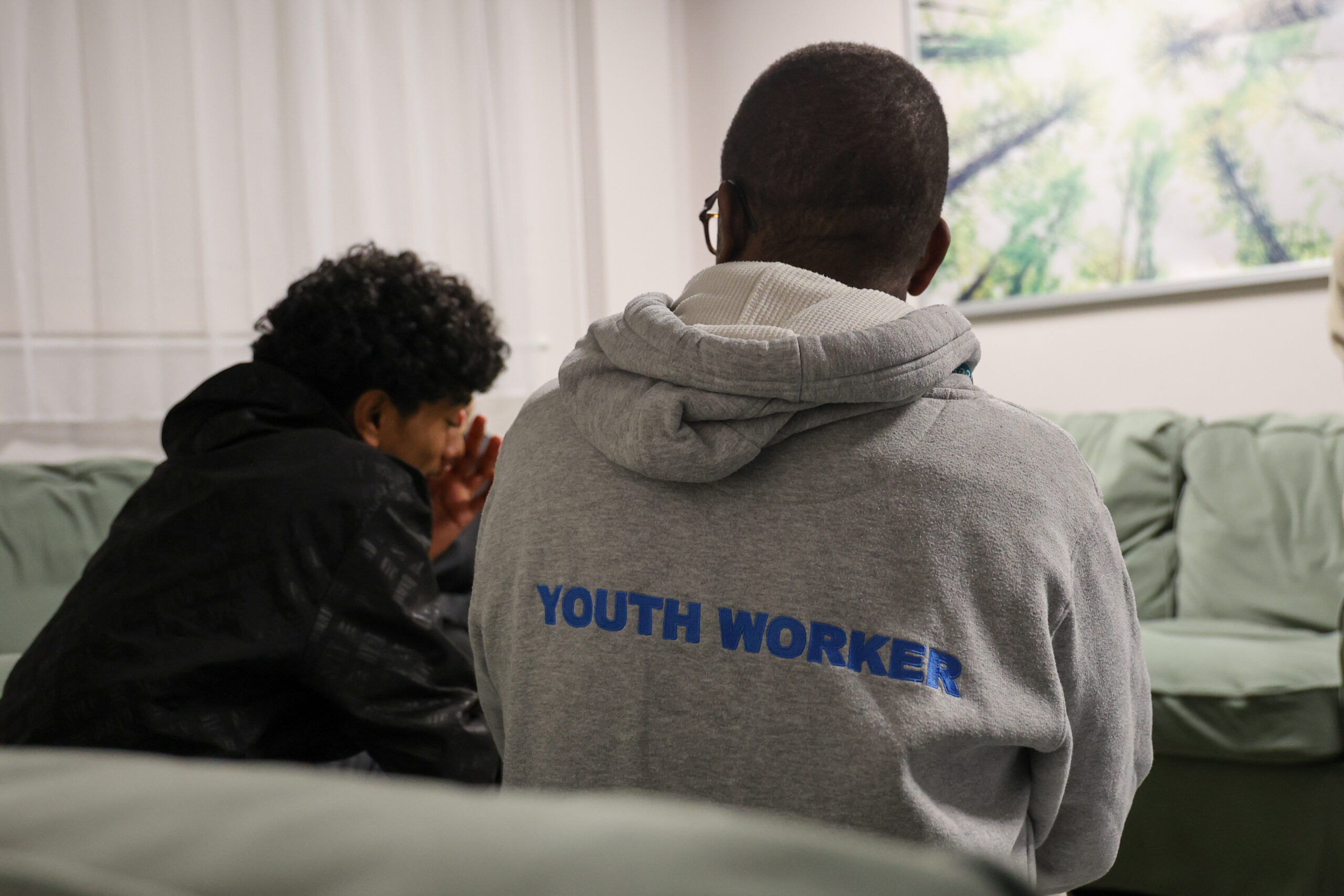
Support Links
There are lots of people in Leicester, Leicestershire and Rutland who can help and support you.
Visit Help and Support to find out more.
Take a look at the sites below for more info around knife crime:
- The Ben Kinsella Trust is one of the leading anti-knife crime charities in the UK, helping to create a society where no one suffers the loss of a life to knife crime.
- Childline offers a safe and secure place for you to talk. They can help you with knife-related advice or any other worries you may have.
- The Mix has advice on what to do if you feel you need to carry a knife.
- No Knives Better Lives offers practical support and information on the effects of knife crime.
- Want to find support in your area? Joy helps you to find activities, groups and support near you.
Questions about knife crime
Yes, you can still get into trouble even if you aren’t physically in possession of a knife or weapon. If you ask another person to carry or hide a knife for you, you could be arrested and face up to four years in prison.
This is a minimum custodial sentence for young people aged 16 or over who are convicted of a second offence of possessing an offensive weapon or bladed article.
Yes. Under the two strike rule, young people aged 16-17-years-old will receive a minimum of four months’ detention and training order. Young people aged 12-17-years-old could receive a detention and training order of up to 24 months duration.
A head teacher or other authorised member of staff of a school in England has the right to search you and your possessions if they have reasonable grounds to think you may be carrying an offensive weapon.
If you are found guilty of carrying a knife in a public place, or on school premises, you could face up to four years in prison.
You can find amnesty bins at different police stations across the Leicester and Leicestershire area. These bins allow anybody to get rid of knives without the fear of being punished, unless the knife is found to have been used for a criminal act.
Amnesty bins can be found at the following stations:
- Beaumont Leys Police Station, 2 Beaumont Way, Beaumont Leys LE4 1DS
- Braunstone Police Station, Hallam Crescent East, Braunstone Town, Leicester LE3 1FF
- Hinckley Police Station, Upper Bond St, Hinckley LE10 1RJ
- Hinckley Road Police Station, 90 Norfolk Street, Leicester LE3 5QP
- Keyham Lane Police Station, Colin Grundy Drive, Hamilton LE5 1FY
- Loughborough Police Station, Southfield Rd, Loughborough LE11 2XF
- Mansfield House Police Station, 74 Belgrave Gate, Leicester LE1 3GG
- Market Harborough Police Station, Fairfield Rd, Leicestershire, Market Harborough LE16 9QJ
- Melton Mowbray Police Station, King St, Melton Mowbray LE13 1EE
- Spinney Hill Police Station, East Park Road, Leicester LE5 5GY
- Wigston Police Station, Bull Head St, Wigston LE18 1WX, UK




